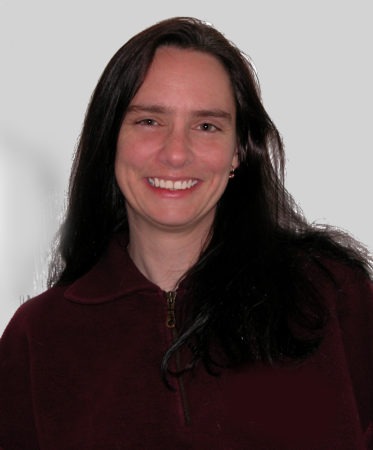Psychology
Experience in LGBT2SQ research
I have three distinct research areas that relate to sexuality generally. First, I have conducted studies that assess the psychological bases for safer sexual practices — with gay men as well as heterosexual populations. I have used social psychological theories — in particular, the Theory of Reasoned Action (M. Fishbein & I. Ajzen) ; the Theory of Planned Behavior (I. Ajzen); and the Information-Motivation-Behavioral Skills Model (Fisher & Fisher) — as the frameworks within which to explain, predict, and change safer sexual and reproductive health behaviors. Findings from these types of studies can be used to develop effective interventions (e.g., what is the best way to convince gay men to use condoms?). A second line of my research investigates attitudes toward sexual minorities. I have conducted research regarding attitudes toward gay, lesbian, intersexual, transsexual, and transgender individuals. I have also looked at attitudes toward people with HIV/AIDS as well as other sexually transmitted infections. Some more topic-specific research has investigated attitudes toward gay and lesbian adoption. I also have published about attitudes toward BDSM. I often use Greg Herek’s Functions of Attitudes Theory as a framework for understanding beliefs about LGBT people. By documenting attitudes (i.e., which might lead to prejudice and discrimination) and understanding why people hold the attitudes that they do, we can begin to try to change these attitudes. A couple of studies which I have conducted investigated the impact of interventions that were designed to foster positive attitudes toward LGBT people. By reducing stigma, prejudice, and discrimination, we indirectly improve the mental health of LGBT individuals. One of the biggest stressors for LGBT people is negative reactions of others to their sexual minority status. Third, I am interested in sexuality education. There’s an old saying: sex education is Kosher – no HAM (homosexuality, Abortion, Masturbation). In particular, I was involved as the lead scientist in a project with the Region of Waterloo; we were investigating the impact of a comprehensive sex education program for young adolescent girls using a theory called the Information-Motivation-Behavioral Skills model of sexual health behaviors (W.A. Fisher & J. D. Fisher). It is important to evaluate existing programs to determine if they are effective at producing the results that they intend. In sum, my three research areas dovetail nicely; they all have strong theoretical bases and have important practical implications. I have also published about motivations underlying enrolling in human sexuality courses.
Interest in LGBT2SQ research
I have three distinct research areas that relate to sexuality generally. First, I have conducted studies that assess the psychological bases for safer sexual practices — with gay men as well as heterosexual populations. I have used social psychological theories — in particular, the Theory of Reasoned Action (M. Fishbein & I. Ajzen) ; the Theory of Planned Behavior (I. Ajzen); and the Information-Motivation-Behavioral Skills Model (Fisher & Fisher) — as the frameworks within which to explain, predict, and change safer sexual and reproductive health behaviors. Findings from these types of studies can be used to develop effective interventions (e.g., what is the best way to convince gay men to use condoms?). A second line of my research investigates attitudes toward sexual minorities. I have conducted research regarding attitudes toward gay, lesbian, intersexual, transsexual, and transgender individuals. I have also looked at attitudes toward people with HIV/AIDS as well as other sexually transmitted infections. Some more topic-specific research has investigated attitudes toward gay and lesbian adoption. I also have published about attitudes toward BDSM. I often use Greg Herek’s Functions of Attitudes Theory as a framework for understanding beliefs about LGBT people. By documenting attitudes (i.e., which might lead to prejudice and discrimination) and understanding why people hold the attitudes that they do, we can begin to try to change these attitudes. A couple of studies which I have conducted investigated the impact of interventions that were designed to foster positive attitudes toward LGBT people. By reducing stigma, prejudice, and discrimination, we indirectly improve the mental health of LGBT individuals. One of the biggest stressors for LGBT people is negative reactions of others to their sexual minority status. Third, I am interested in sexuality education. There’s an old saying: sex education is Kosher – no HAM (homosexuality, Abortion, Masturbation). In particular, I was involved as the lead scientist in a project with the Region of Waterloo; we were investigating the impact of a comprehensive sex education program for young adolescent girls using a theory called the Information-Motivation-Behavioral Skills model of sexual health behaviors (W.A. Fisher & J. D. Fisher). It is important to evaluate existing programs to determine if they are effective at producing the results that they intend. In sum, my three research areas dovetail nicely; they all have strong theoretical bases and have important practical implications. I have also published about motivations underlying enrolling in human sexuality courses.
Published Work
- Rye, B.J., Elmslie, P. & Chalmers, A. (2007). Meeting a transsexual person: Experience within a classroom setting. Canadian On-Line Journal of Queer Studies in Education, 3(1)
- Meaney, G.J., & Rye, B.J. (2010). Gendered egos: Attitude functions and gender as predictors of homonegativity. Journal of Homosexuality, 57(10), 1274-1302.
- Rye, B.J., & Meaney, G.J. (2010). Self-defense, sexism, and etiological beliefs: Predictors of attitudes toward gay and lesbian adoption. Journal of GLBT Family Studies, 6(1), 1-24.
- Rye, B.J., & Meaney, G.J. (2009). Impact of a homonegativity awareness workshop on attitudes toward homosexuality. Journal of Homosexuality,56(1), 31-55.
- Rye, B.J., & Meaney, G.J. (2010). Measuring homonegativity: A psychometric analysis. Canadian Journal of the Behavioural Sciences, 42(3), 158-167.

